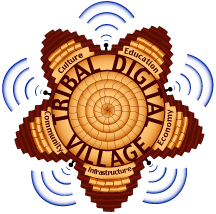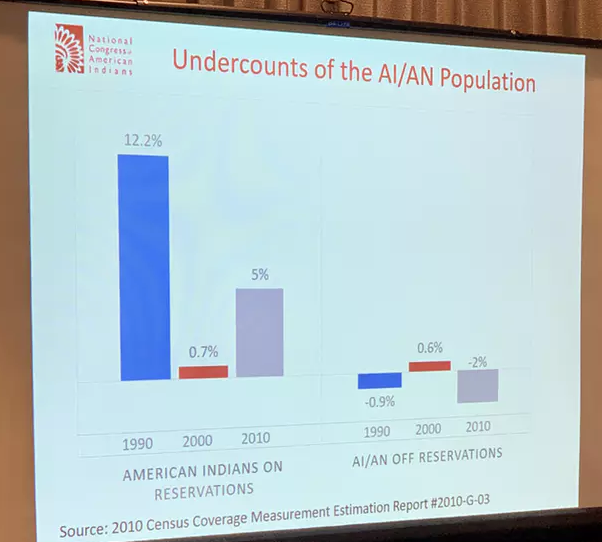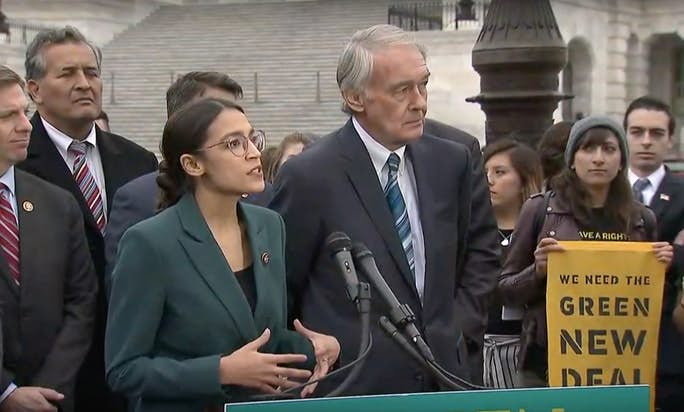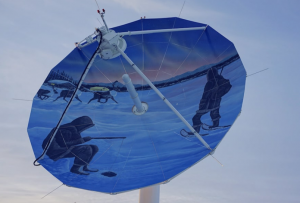The Government Shutdown Is Choking Indian Country
https://splinternews.com/the-government-shutdown-is-choking-indian-country-1831430244
As President Donald Trump’s tantrum over border wall funding stretches the federal government shutdown into its 12th day, it’s Native people who are left holding the bag once again.
A report from two tribal reservations in Michigan and Minnesota published by the New York Times provided a partial view of the realities faced by Native nations when the United States government grinds to a halt. In the piece, the Times spoke with leaders in the Chippewa Indians of Michigan, the Navajo Nation, and the Bois Forte Band of Chippewa, all of whom shouted the same message: A long shutdown will cause irrevocable harm to Natives and their governments.
The reason for this outcry is fairly simple. Over the course of the last two centuries, the United States made ‘deals’ with Native nations in the loosest sense of the term, as they came about only when the American government flexed its military force and took their land by violent, unjust means. And so scores of one-sided treaties were signed, many amounting to different variations of the same trade-off: The colonizers would get their precious land, and in return, Native peoples would be allowed to establish their own sovereign nations on tiny parcels and would be provided funding from the U.S. federal government for healthcare and education.
When a government shutdown comes about, the promises made in writing years ago are given even less attention than they already struggle to garner, meaning thousands of Natives are without basic necessities like healthcare and food.
The Bureau of Indian Affairs is housed within the Department of the Interior. Within the BIA are programs aimed at providing healthcare to Indigenous people, specifically the Indian Health Service. As Mark Trahant wrote for Indian Country Today, 54 percent of the IHS budget is dedicated to transferring funds to tribes and nonprofit clinics and hospitals that serve Native populations. All of that already limited funding is halted until the shutdown is concluded; not only
Part of the issue stems from the fact that IHS is an agency that is appropriated funds and not deemed by the federal government as a “mandatory spending” operation, like Medicare, Medicaid, and Social Security. This has been a longstanding issue in Indian Country, and yet, like a variety of recent Native-focused bills, attempts to address it came too late. Rep. Markwayne Mullin, a member of the Cherokee Tribe and a Republican congressman from Oklahoma, introduced H.B. 7362 to fund IHS through a government shutdown. Unfortunately, Mullin didn’t introduce the bill until Dec. 20, at the tail end of Congress’s 2018 session, giving it no chance at all at passing.
Aside from the Interior, the shutdown’s effects on the Department of Agriculture will also harm Indian Country’s most vulnerable people, as well as hordes of poor Americans. At the five-day mark of the shutdown, the office of Food and Nutrition Services—the group in charge of managing and distributing the Supplemental Nutrition Assistance Program (SNAP) and the Special Supplemental Nutrition Program for Women, Infants, and Children (WIC), two major federal assistance programs for impoverished people—was limited to operating with just five percent of its total staff, per CNN.
In addition to SNAP and WIC partially functioning, the Department of Agriculture is also in charge of the Food Distribution Program on Indian Reservations, which feeds roughly 90,000 Natives in 276 tribes annually. As FDPIR will only operate if it has the resources to do so, this will inevitably leave scores of poor Natives without access to affordable food.
If this feels doomsday-ish, it’s because it should. The sense of emergency in the case of a shutdown exists because tribal governments, similar to state governments, have hard-set budgets to draw from. As detailed by a letter to tribal leaders from IHS, tribes won’t be reimbursed for the money they spend to cover the federal government’s share until a spending bill is passed by Congress, leaving Indian Country scrambling to figure out how to financially weather the shutdown and protect its people.
For Natives, this latest shutdown and the end result of them being again abandoned by a country concerned only with its own petty politics, is not anything new. The same happened in 2013 and in 1994 and Lord knows how many times before that. Eventually, the government will resume operation, Congress will go on ignoring Natives, and Indian Country will wonder to itself for the millionth time if anyone will ever listen before it’s too late.





Comments are closed here.